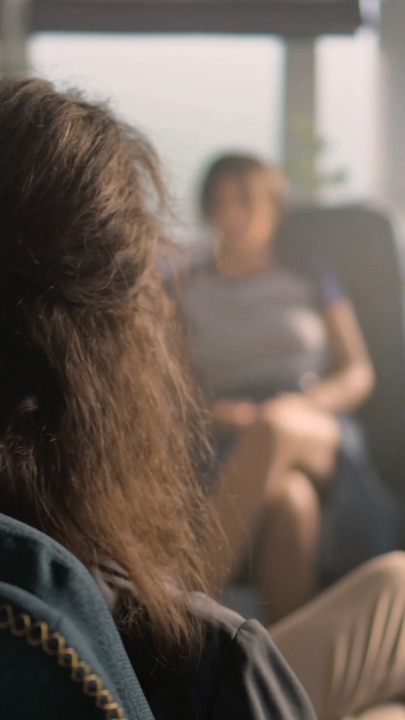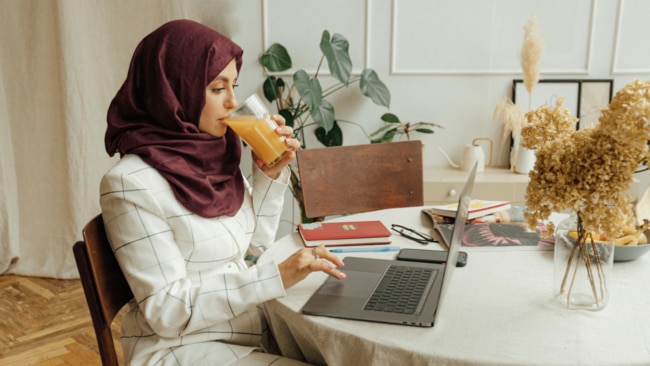'Likeablility labour' is holding women back in their careers
More unpaid labour

Lifestyle
Don't miss out on the headlines from Lifestyle. Followed categories will be added to My News.
Women are dedicating time and energy to being liked at work. A new report highlights just how big of a toll it's taking on us.
Is work just work for you, or are you deeply affected if one person on your entire floor doesn’t like you?
Do you lock in until you clock off, or spend half your workday making the effort to chat to your colleagues?
Do you regularly offer to buy your coworkers coffee, help with their tech issues, printing and presentations, even though it's definitely not in your job description?
While it might not feel taxing, the effort you’re putting into being likeable in the office is likely having a greater impact on your career than you realise.

A new report has highlighted the amount of time and effort women dedicate to being liked at work.
After surveying over 1000 people, CEO of the Good Shout Community, Amy Kean found that women feel more pressure to be liked not just in their day-to-day lives, but in the office too.
No matter where they work, both men and women worry about being likeable, but women feel the burden more.

Kean explained, “the pressure for women to be ‘likeable’ is a culturally entrenched demand that transcends industries and job titles. In academia, politics, entertainment and beyond, women are expected to balance competence with warmth, assertiveness with agreeability, and combine authority with overt humility”.
“They’re supposed to be the office mum, taking the notes in meetings while softly whipping everybody into shape and baking cakes on Fridays in order to be as palatable as possible. When they fail to meet these impossible standards (because, shock horror, women have different personalities), the consequences can be harsh: they’re often branded as cold, bossy, abrasive or simply ‘unlikeable’.”

We’ve all been guilty of it.
Even if we’re the expert in our field, have been in our jobs for years, and are confident in our skills, we’ve dropped a “does that make sense” at the end of a message, knowing full well it makes perfect sense.
According to the report, 38 per cent of women have lived this, while 37 per cent of women have included an “it would be amazing if” before asking for a basic thing. And we’re still 10 per cent more likely to apologise at work than men.

It’s natural to want to behave professionally while at work, but women are taking it several steps further.
We’re changing our language and behaviour so we don’t come across as ‘rude’ or ‘bossy’ or ‘pushy’ and downplaying our achievements while celebrating others’.
We’re twice as likely as our male counterparts to adjust how we speak or act in the hopes of being more liked.
Half of women have also held back on sharing their opinion out of fear they’d be seen as ‘difficult’.

Work stress can take a toll on our mental health and drain us of energy, but couple that with the additional labour of trying to be liked and it’s surprising some of us have much energy left at all.
All genders experience this mental exhaustion, but 56 per cent of women feel the pressure to be likeable either all or some of the time, while 36 per cent of men feel the same thing.
It’s painful to think about the amount of work we could have got done in the time we’ve dedicated to going the extra mile just to be liked.
Kean said it isn’t so much of a personal issue as a cultural one.

Her solution?
“Make it clear that ‘challenging’ isn’t the same as ‘rude’. And in businesses, start punishing relational aggression: harsh words behind people’s backs that damage social relationships make everyone paranoid”.
“Women don’t need to smile more. They don’t need to soften their emails or preface their ideas with apologies. They need workplaces brave enough to let them be brilliant.”
“Let’s stop asking women to shapeshift. Instead, let’s start communicating like grown-ups.”
More Coverage
Originally published as 'Likeablility labour' is holding women back in their careers





